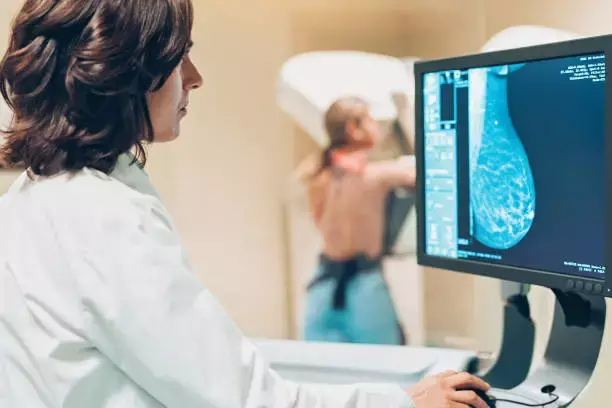- Home
- Medical news & Guidelines
- Anesthesiology
- Cardiology and CTVS
- Critical Care
- Dentistry
- Dermatology
- Diabetes and Endocrinology
- ENT
- Gastroenterology
- Medicine
- Nephrology
- Neurology
- Obstretics-Gynaecology
- Oncology
- Ophthalmology
- Orthopaedics
- Pediatrics-Neonatology
- Psychiatry
- Pulmonology
- Radiology
- Surgery
- Urology
- Laboratory Medicine
- Diet
- Nursing
- Paramedical
- Physiotherapy
- Health news
- Fact Check
- Bone Health Fact Check
- Brain Health Fact Check
- Cancer Related Fact Check
- Child Care Fact Check
- Dental and oral health fact check
- Diabetes and metabolic health fact check
- Diet and Nutrition Fact Check
- Eye and ENT Care Fact Check
- Fitness fact check
- Gut health fact check
- Heart health fact check
- Kidney health fact check
- Medical education fact check
- Men's health fact check
- Respiratory fact check
- Skin and hair care fact check
- Vaccine and Immunization fact check
- Women's health fact check
- AYUSH
- State News
- Andaman and Nicobar Islands
- Andhra Pradesh
- Arunachal Pradesh
- Assam
- Bihar
- Chandigarh
- Chattisgarh
- Dadra and Nagar Haveli
- Daman and Diu
- Delhi
- Goa
- Gujarat
- Haryana
- Himachal Pradesh
- Jammu & Kashmir
- Jharkhand
- Karnataka
- Kerala
- Ladakh
- Lakshadweep
- Madhya Pradesh
- Maharashtra
- Manipur
- Meghalaya
- Mizoram
- Nagaland
- Odisha
- Puducherry
- Punjab
- Rajasthan
- Sikkim
- Tamil Nadu
- Telangana
- Tripura
- Uttar Pradesh
- Uttrakhand
- West Bengal
- Medical Education
- Industry
Mammographic features associated with cardiometabolic risk and mortality: Study

Mammographic features are tied with increased cardiometabolic risk and mortality, suggests a study published in the European Heart Journal.
In the past few decades, microcalcifications found in routine mammograms were found to be associated with cardiometabolic disease in women. Microcalcifications are nothing but tiny calcium deposits that look like white specks on a mammogram. Microcalcifications are usually not a result of cancer. But if they appear in certain patterns and are clustered together, they may be a sign of precancerous cells or early breast cancer
A study conducted by Grassmann et. al to systematically evaluate the association of microcalcifications and other mammographic features with cardiometabolic disease risk and mortality in a large screening cohort and to understand a potential genetic contribution.
The researchers included 57, 867 women from a prospective mammographic screening cohort in Sweden (KARMA) and 49, 583 sisters. Cardiometabolic disease diagnoses and mortality and medication were extracted by linkage to Swedish population registries with virtually no missing data.
The results of the study are as follows:
- In the cardiometabolic phenome-wide association study, a higher number of microcalcifications were associated with increased risk for multiple cardiometabolic diseases, particularly in women with pre-existing cardiometabolic diseases.
- In contrast, dense breasts were associated with a lower incidence of cardiometabolic diseases.
- Also, similar associations in sisters of KARMA women, indicating a potential genetic overlap between mammographic features and cardiometabolic traits.
- Finally, the presence of microcalcifications were associated with increased cardiometabolic mortality in women with pre-existing cardiometabolic diseases while no such effects were found in women without cardiometabolic diseases.
The researchers concluded that mammographic features are associated with cardiometabolic risk and mortality. Their findings strengthen the notion that a combination of mammographic features and other breast cancer risk factors could be a novel and affordable tool to assess cardiometabolic health in women attending the mammographic screening.
Reference:
A study titled, "Mammographic features are associated with cardiometabolic disease risk and mortality" by Grassmann F et. al published in the European Heart Journal.
Dr. Shravani Dali has completed her BDS from Pravara institute of medical sciences, loni. Following which she extensively worked in the healthcare sector for 2+ years. She has been actively involved in writing blogs in field of health and wellness. Currently she is pursuing her Masters of public health-health administration from Tata institute of social sciences. She can be contacted at editorial@medicaldialogues.in.
Dr Kamal Kant Kohli-MBBS, DTCD- a chest specialist with more than 30 years of practice and a flair for writing clinical articles, Dr Kamal Kant Kohli joined Medical Dialogues as a Chief Editor of Medical News. Besides writing articles, as an editor, he proofreads and verifies all the medical content published on Medical Dialogues including those coming from journals, studies,medical conferences,guidelines etc. Email: drkohli@medicaldialogues.in. Contact no. 011-43720751


